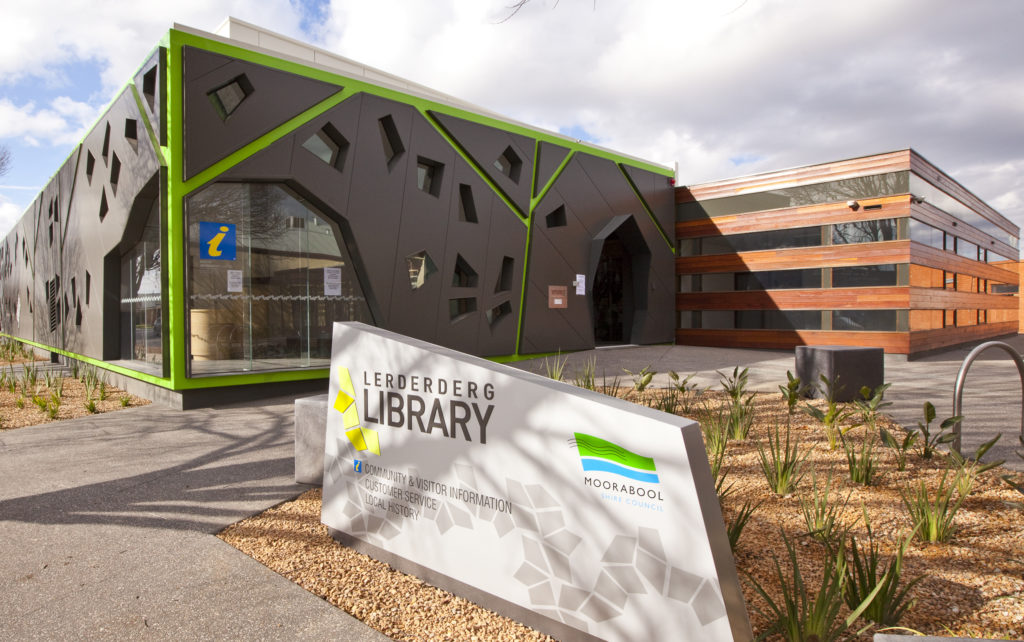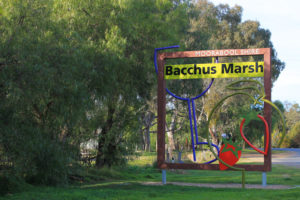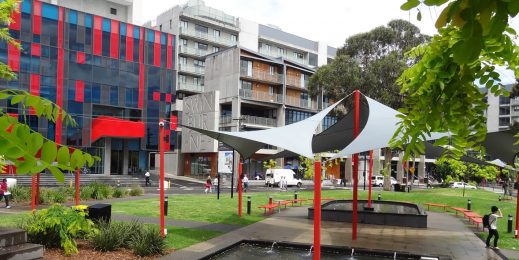
Moorabool Shire expands digital service options, drives down cost, responds to COVID-19
Stretch out the sealed roads in Victoria’s Moorabool Shire and you could travel in a straight line from Melbourne all the way to Newcastle.
It’s an impressive collection of tarmac that Moorabool Shire Council manages and maintains, along with its libraries, child care, aged and vulnerable support services, parks … the list goes on. While Council focusses on the delivery of high–quality services – it needs to achieve that economically and efficiently.
It’s a challenge that many enterprises face – to do more with less. And that need is magnified by the current restrictions designed to reduce the risk of COVID-19 spread which has seen Moorabool Shire Council recommend that employees work from home where possible. Council has also suspended face-to-face meetings with residents, instead channeling all inquiries to its contact centre which is experiencing a significant increase in call and email volumes.
Fortunately, Council’s digital transformation initiative has been able to respond to the additional challenge posed by remote working and virtual engagement with residents.
Its ongoing digital transformation is streamlining the way the Council operates, providing new digital channels to engage with ratepayers and businesses, and delivering modern tools to help council workers do their jobs more efficiently across the 2,100 square kilometre Shire, regardless of where they are located.
Council’s recently deployed digital infrastructure allows employees to hold virtual meetings, to share documents and information, and to collaborate online rather than in the office. Around 70 per cent of Council’s “inside” workforce have been working from home.
The Shire’s maternal health nurses, who traditionally make home visits after the birth of a baby, are also holding online consultations using Microsoft Teams to ensure the new baby and mother are thriving – but also to keep both the new family and nurse safe from the threat of COVID-19.
Council’s youth workers are also exploring how it might be possible to use Teams to create virtual hangouts with the region’s young people who can no longer congregate at a physical hub, but benefit from the opportunity to connect online.
Shifting expectations
More than 32,000 people live in Moorabool Shire, many of whom commute to Melbourne for work. The demographic is changing rapidly as people relocate to the area, bringing with them the promise of the Shire doubling in size by 2040.
Many new residents also harbour different expectations about the way in which they want to engage with Council.
The face-to-face and phone interactions of the past won’t meet the expectations of a younger demographic – nor are they affordable and efficient for Council.
The cost of face to face or phone interactions are costed in dollars; digital interactions meanwhile cost just cents. The trick comes from making the digital interaction as effective as face–to–face or telephone calls.
For Lalitha Koya, Moorabool Shire Council’s ICT manager, the combination of shifting user needs and a constrained budget proved the clarion call for digital transformation, a move to cloud computing, and embrace of modern productivity platforms. Adopting cloud means that his team is no longer shackled to the daily grind of keeping the lights on – but can work with council on new digital ways of working and process reform to ensure that the community needs are met.
And in the COVID-19 era there has never been greater demand for a new way of working.
Office 365 has been deployed across Council which worked with cloud and digital transformation specialist SXiQ to deploy SharePoint to support internal collaboration. Power BI has been deployed to provide executive insights – serving up ERP–sourced data in digestible forms.
“The information previously was in little pockets here and there, and accessible to only a handful of people,” Koya explains. “What we have done is extract that information from source systems, and made it available throughout the organisation. Most of our planning department, they have that visibility and the dashboard in front of them, when is an application coming and how long it’s been sitting there, what state it’s in.”
The finance team meanwhile is no longer shackled to scouring spreadsheets – but can use Power BI to access financial information in near real time. And Moorabool is exploring how Power BI can deliver transparency to ratepayers so that they can jump on a website and see how funds are being spent in their area on parks, gardens, roads. The data was always in the system Koya explains – but now Power BI makes it transparent and ensures that the entire organisation is working from a single source of truth.
As part of the transformation Koya is also moving a series of workloads across to Azure, freeing his team from keep-the-lights-on work. His goal over the next 12-24 months is to move 100 per cent of the Council’s workloads into Azure and use Software as a Service solutions wherever possible.
Teams transforms
One of the most welcome innovations has been the rollout of Teams to support communications and collaboration across the organisation.
For a Council where there is a need for multiple stakeholders to be involved in decision making and expenditure, this has proved a particular benefit says Koya.
“There’s a lot of to and fro between the finance team, business units, general managers, then the executive board and councillors with some public consulting. And then finally a budget gets approved.
“This process will take a lot of time. Historically we have been doing through emails, paper.”
Teams allows all that consultation to happen online with all the associated documents available in the channel. It means, says Koya; “Everybody can work at the same time. They’re seeing the right numbers.”
It accelerates and streamlines the process significantly – and also provides the conduit for external communications and collaboration.
We have rolled out Teams to enable the collaboration internally to work on within the staff and are also working with external agencies where we can work together in one space rather than sharing documents that are links or through attachments, he adds.
Teams has been particularly important to ensuring the business continuity of Council operations through the COVID-19 crisis.
The organisation has been moving toward a “work from anywhere” approach for almost two years which according to Koya meant that; “We bounced very well in the current situation.”
It has also allowed Council staff to innovate and create new services for the community. For example, although libraries have closed, library staff have been using technology to run new services such as storytelling for children using social media.
Staff who work to support the aged and vulnerable in the community are also using technology to stay in touch with clients and support their needs.
Even ahead of the current crisis demand for Teams spread like wildfire says Koya but to ensure that there was proper governance and rigour around the way information was being shared he also deployed the AvePoint cloud governance solution for Office 365.
That’s been important in order to be able to meet the information management and State record keeping obligations that Councils face.
To ensure Moorabool extracts maximum value from the transformation Koya appointed a full-time trainer to support all 400 users. Their needs are diverse because Council comprises not just the staff who would normally work in offices – but also workers who maintain the Shire’s assets, school crossing supervisors, parks and gardens workers each of whom has particular requirements and different technology skills sets and access needs.
Having a specialised trainer on the team ensures everyone is comfortable using the systems and communicating using Yammer and Teams, sharing information or rosters as required.
A substantial number of people are also using Teams to make voice calls using Telstra’s TCO 365 offering.
Koya’s next plan is to work with Datacom to modernise Moorabool’s ERP – though he stresses whatever is selected will have to feature an open API and native integration with SharePoint and Office 365.
That’s because of the critical need for transparency and streamlined integration. Koya explains; “Council provides anywhere up to 200 odd services. No one service is the same as the next service. It’s a lot of micro-businesses within the council which comes up as the one council.
“For a resident, when they interact with us, they don’t care whether you’re dealing with a property rates, animal registration or parking infringement. They just see us as a council.
“We need to make sure we capture that and don’t create those silos and have that single source of information. “

















